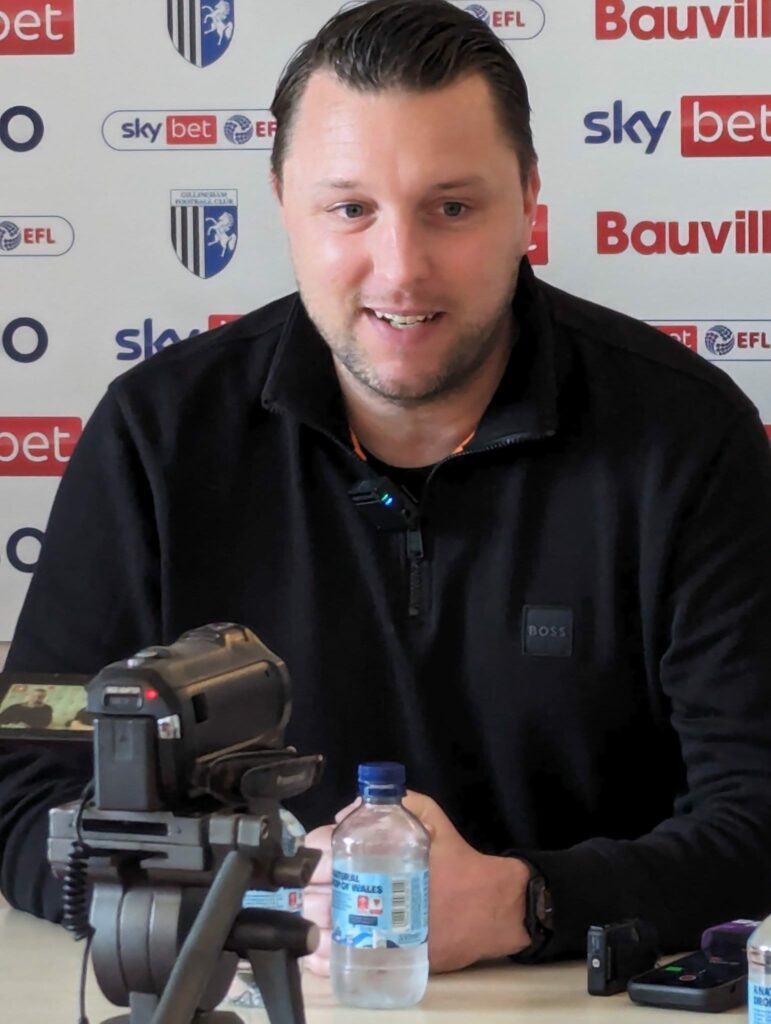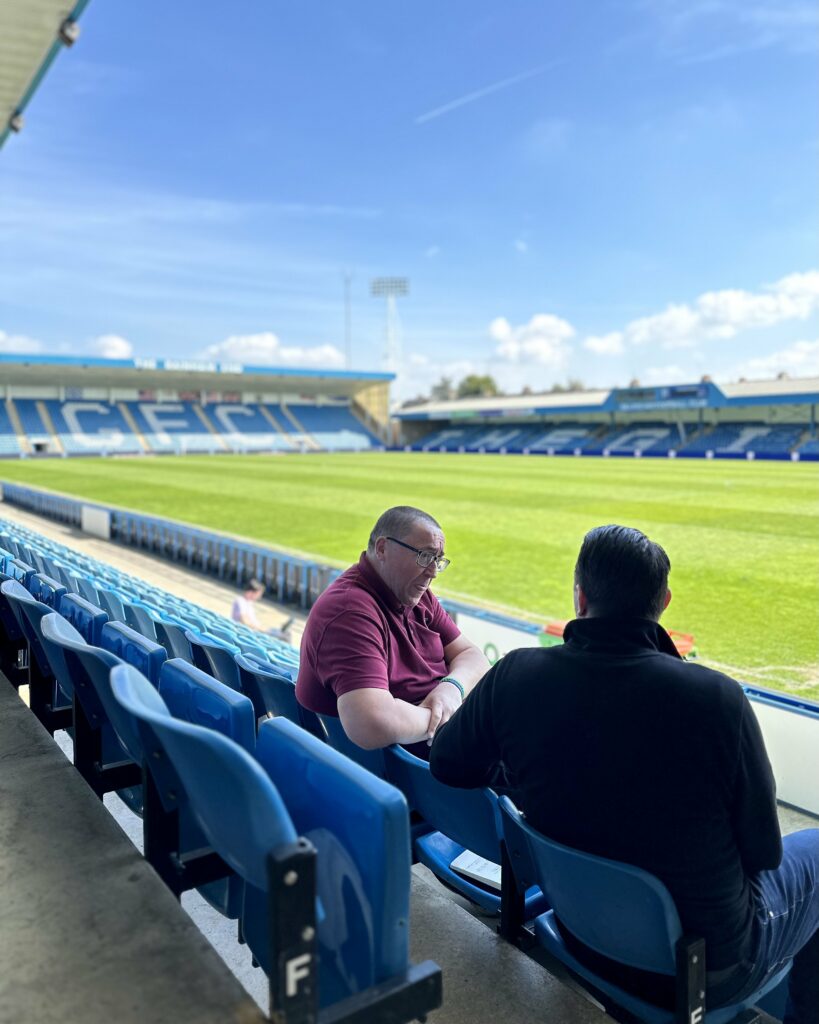It is the time to reflect on what’s been and focus on what’s ahead, and for new Gillingham boss Mark Bonner, planning is certainly foremost in his mind.

“My priority is simple,” the new manager told us, “Build a first team that can be successful – simply said, difficult to do and really challenging, but that’s what my job is and any other value I can add across the Club, I’ll be happy to do it.”
“Although my coaching journey has been through Academies, my passion now is focused on the first team and do that, but if I add value to the Academy and help people, give advice to people, and help the Club’s aims with the Academy, then I will definitely do that.”
“I have got lots of experience, but there are people at Priestfield who are good at doing it too, and my time now will be on the first team and if I do not focus on that, it will show!”
“The time between now and the start of next season will go quickly, but it is time that you do not normally get. To get this period to build and prepare when you first join a Club is not normal as it’s normally within season, or much nearer the (start) time; it gives us space to do good work and get ready for it, and we have got to use that the very best we can.”
“Every situation is different – it is my first time going into a new Club and starting in the role, but there is always a first time for everything!”
“When I took the Cambridge job from within, there was the “first” pre-season, “first” transfer window, “first” time taking the team; there’s a “first-time” taking everything, but now I’ve taken over two hundred games and done lots of the other things in the twenty years that I have been coaching through Academies and First Team as well, so I think it makes me fairly well qualified to come in and hit the ground running – I’m really excited about that and really confident about that.”
“This gives me a good period of time to imbed myself at Priestfield so that the time everyone does come back to work play wise, I will have been here a couple of months, and it will feel a lot more like my Club than if my day one was theirs as well!”

Bonner takes the reigns and will be the youngest manager in League Two for the new season… “Funny enough I was the youngest last time as well,” Bonner joked, “That was four years ago – nearly five – I have always been young doing the job I am doing… I started as a manager at thirty-four – I will be thirty-nine in November – so the age “thing” does not bother me, and if there are players older than me in the teams, it’s irrelevant… There is some unbelievable experience at this Football Club in Hess (Andy Hessenthaler), in Kenny (Jackett) who will help me when I need it and am looking forward to working with.”
“I left school at sixteen and started coaching – I’ve no footballing career worth talking about having played at a level that could have earned me “a couple of quid” though nothing more and was always going to go further in coaching than I was in playing.”
“I made a very wise decision at sixteen to stop playing and start coaching and twenty-two years later, I have ended up in this very privileged position!”
“Every day is a “school-day,” and I do not think that that ever changes. Learning on the job is always important because it is a really flexible game, a really changeable industry and you must adapt to every scenario.”
“Whilst some seasons over the years when you look back follow a similar pattern to another, no two seasons are the same, no two problems are the same, there is always a different part that is slightly removed or different, so it’s adapting to that, so evolving as a coach is coping with that and trying to make as many right decisions as you can.”
“I think coaching is about getting out of them what’s in them rather than magically giving them something that they have not got.”
“So we have to use the players that we’ve got – get the best out of them – we need to add players that can do what we want and get the best out of that, that is the job really – give them the chance to be surrounded by players who can help them be the best version of themselves, give them an environment that allows them to be themselves and give them the structure as a team that gets them all doing what they are good at in line with what we are trying to achieve – that is the “magic” formula that is so easy to say, but really difficult to actually achieve, but that’s what we’re going to go after!”
“We must become a winning team and if we can make this place (Priestfield) a place that people really do not want to come to, and we get really good results here consistently, it will really help us, as it will build our confidence and build our reputation of being a really strong team!”
“We are not there yet, but I promise you that we will get to work on it and try and do it…”
“Hopefully, I’ve got an enthusiasm and experience beyond my age to be competitive as what this League’s got are some good Clubs that also have ambitions, that also have good players, that also want to get out of the League and have good resource and have some brilliant managers with bags of experience – it’s a great competition to play in and one that I’m really happy to be back in!”





